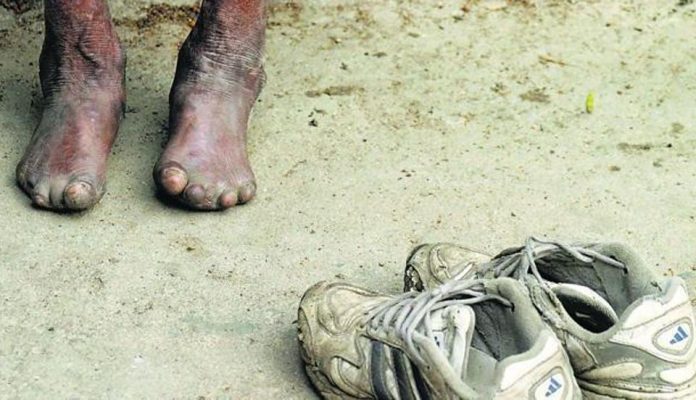A petition highlighting the existence of archaic laws that violate the fundamental rights of the leprosy-afflicted persons has led the Supreme Court to ask the central government if such laws were needed
The PIL filed by Vidhi Centre for Legal Policy (VCLP) points out the 119 laws that are discriminatory against leprosy patients and stigmatises them. These provisions deny the patients access to public services , disqualifies them from public posts, and places various restrictions on them, the plea noted.
The PIL stated that there was no justification in the 21st century to keep away a person suffering from leprosy from the “mainstream” and “suffer from ignominy” of being a patient of a contagious disease.
VCLP has argued that these restrictions are not reasonable given the medical advancements in the treatment of leprosy which makes the disease now non-infections.
Appearing on behalf of the petitioner, senior advocate Raju Ramchandran cited the 256th report by the Law Commission that had recommended that discrimination against those with leprosy be removed.
A bench led by Chief Justice Dipak Misra noted that the disease was curable and gave the Centre eight weeks to submit its response on the need for the laws.
Wide Ranging Discriminatory Laws
The petitioner supported the case by highlighting several provisions of personal laws that permit dissolution of marriage if any one of the partners is “suffering from a virulent and incurable form of leprosy”:
- Section 13 of the Hindu Marriage Act, 1955
- Section 2 of the Dissolution of Muslim Marriage Act 1939 and
- Section 27 of the Special Marriage Act 1954,
- Section 18 of the Hindu Adoption and Maintenance Act 1956;
- Section 18 of the Jammu And Kashmir Hindu Adoptions And Maintenance Act 1960;
- Section 13 of the Jammu And Kashmir Hindu Marriage Act 1980 and
- Section 2 of the Jammu And Kashmir Dissolution Of Muslim Marriages Act 1999
Other discriminatory laws include
- The Orissa Municipal Corporation Act, 2003 bans a leprosy patient from contesting civil polls
- The Rajasthan Panchayati Raj Act, 1994, includes a provision that bars people having the disease from participating in elections for the position of a panch or other members
- Section 35(2) of the Karnataka Rajya Dr. Gangubai Hangal Sangeetha Mattu Pradarshaka Kalegala Vishwavidyalaya Act, 2009, allows the Syndicate of the University to remove members suffering from leprosy from any authority of the University
Many of these 119 laws violate the right to move freely throughout India and also the right to practise any profession.





